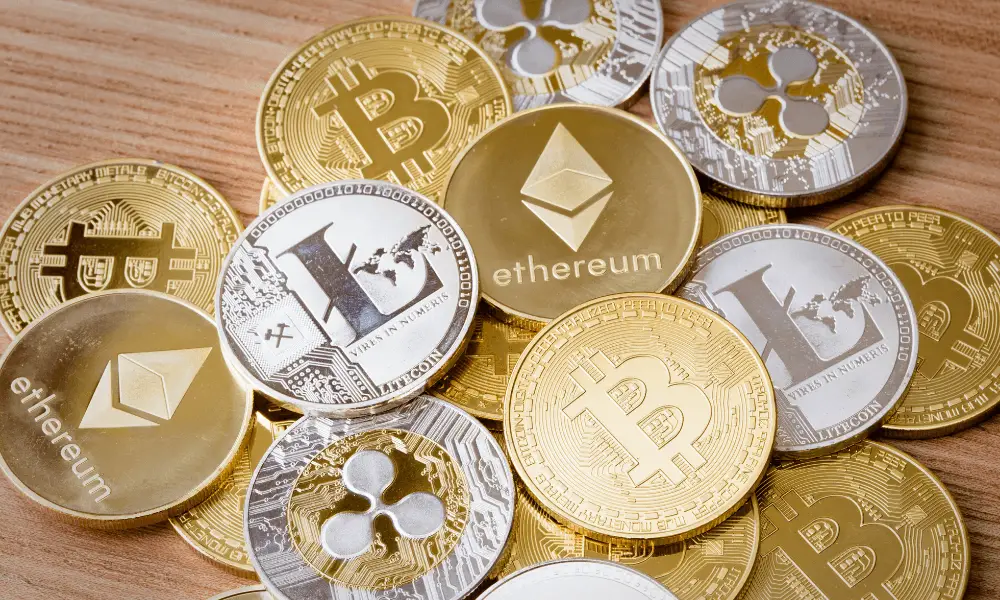Whenever cryptocurrency is mentioned, people instantly think about Bitcoin, and they are right to do so since Bitcoin is the first cryptocurrency ever and certainly the most powerful one. But is Bitcoin the only cryptocurrency to exist? Definitely, no!
Cryptocurrencies are currencies that are used to buy goods and services online. You can buy USDT and invest in cryptocurrencies, sell them, trade, and exchange them easily. Unlike the US dollar and Euro, the value of cryptocurrencies is neither regulated nor controlled by the government, third parties, or intermediaries. Rather, it is referred to as a decentralized, digital, and encrypted medium of trade. Its tasks are dispersed among its users over the internet using blockchain technology.
Bitcoin is the pioneer of cryptocurrencies, and Satoshi Nakamoto initially described it in a 2008 paper as “Bitcoin: A Peer-to-Peer Electronic Cash System.” According to Nakamoto, the concept was an electronic payment system based on cryptographic evidence instead of faith. Since then, thousands of altcoins (alternatives to Bitcoin) have been created to establish a competitive advantage over Bitcoin and to handle the limitations of Bitcoin.
With the cryptocurrency industry growing in popularity by the day, everyone is eager to find and invest in the top cryptocurrencies in 2026. We are presenting you a list of the best cryptocurrencies in the market that will do well this year, and you can invest in them. Even though the cryptocurrency market is constantly unpredictable and risky, these altcoins have been doing well for a long time.

10 Best Bitcoin Alternatives to Buy in 2026:
1. Ethereum (ETH)
While buying cryptocurrency, the second most famous crypto investors remember after Bitcoin is Ethereum. The Ethereum blockchain is programmers’ favorite because of its possible applications and potential usage, such as smart contracts.
Smart contracts are blockchain scripts or agreements that run when certain criteria are satisfied. They are frequently used to automate the execution of a contract so that all parties are aware of the conclusion immediately and without the need for any middlemen. Smart contracts may also automate a workflow by triggering the next phase when specific criteria are satisfied.
Ethereum is an open-source, decentralized blockchain featuring smart contracts and the native currency of the Ethereum platform is Ether. Ether has over $200 billion in market capitalization, making it the second most popular cryptocurrency.
See Also: Can I Buy Bitcoin in the USA without Card Verification?
2. Cardano (ADA)
Cardano is another popular Bitcoin alternative cryptocurrency and one of the major blockchains that use a proof-of-stake consensus mechanism rather than the proof-of-work algorithm used by Bitcoin. This solution cuts transaction time and energy usage by eliminating Bitcoin’s competitive and problem-solving part of transaction verification.
Although Ethereum will transition to PoS in the future, it will be a gradual process. Cardano takes pleasure in ensuring that any technology created is peer-reviewed, allowing for the validation of ambitious ideas. This intellectual rigor makes the blockchain and its native cryptocurrency (ADA) more durable and reliable, boosting the likelihood of avoiding possible hazards.
3. Bitcoin Cash (BCH)
Bitcoin Cash makes it to the list of Bitcoin alternatives because it is one of the first and most successful hard forks of Bitcoin. Bitcoin Cash was created as a result of the Bitcoin split (hard fork) to cater to the scalability issue of Bitcoin. It has increased the block size from 1MB to 8MB so that larger transactions can be carried out faster than Bitcoin. It has also removed the Segregated Witness Protocol, which impacted the block size.
Now Bitcoin Cash holds a market cap of more than $6.5 Billion.
4. Litecoin (LTC)
One of the most prominent Bitcoin alternatives is Litecoin. The Litecoin Foundation, managed by Charlie Lee, a former Google and Coinbase employee, is in charge of the network. Litecoin, according to Lee, is the “silver” to Bitcoin’s “gold.” The Litecoin network is comparable to Bitcoin in transaction speeds, block generation time, hashing algorithm, and the maximum number of coins. Still, it differs in transaction speeds, block generation time, hashing method, and the maximum number of coins.
Litecoin has also been dubbed the “layman’s Bitcoin” by Lee. Litecoin has a market capitalization of about $8 billion. The mainstreaming of Litecoin has been aided in significant part by computer heavyweights like Microsoft Corporation. The Washington-based software corporation is quite optimistic about the crypto revolution’s future. In this case, elite hedge funds support Microsoft Corporation Ken Fisher’s Fisher Asset Management owns 24.8 million shares of Microsoft Corporation valued at more than $6.7 billion.
Related: Why Crypto Market Is So Down? 8 Major Reasons
5. Polkadot (DOT)
Being the top Bitcoin alternative, Polkadot aims to bring interoperability between blockchains that cryptocurrencies can use. Polkadot (and its namesake coin) intends to bring them together by establishing a cryptocurrency network that connects the many blockchains and allows them to collaborate. This integration has inspired tremendous growth since the launch of Polkadot in 2020, and it has the potential to alter how cryptocurrencies are managed. It has a market capitalization of approx—$ 24.5 Billion.
6. Ripple (XRP)
The trusted Bitcoin alternative, Ripple is a digital technology and payment processing startup that may be used on that network to ease the exchange of various currencies, including fiat currencies and major cryptocurrencies. Its security solution is remarkable since it offers low-cost end-to-end encryption. It also allows users to do international transactions. Its transaction validation process is safe, secure, and cheaper than many altcoins.
7. Solana (SOL)
Solana was primarily founded to aid in decentralized finance (DeFi), decentralized applications (dApps), and smart contracts. This Bitcoin alternative employs a hybrid proof-of-stake and proof-of-history approach to handle transactions securely and swiftly. SOL, Solana’s native coin, powers the platform. It has a market value of $65 Billion. Its price has risen about 13,000 percent by the beginning of February 2022.
You May Like: Is It Safe to Invest In Cryptocurrency Now?
8. Binance Coin (BNB)
Being a good Bitcoin alternative, Binance Coin cannot only be used to buy and sell goods online but also pay fees on Binance, one of the world’s most popular cryptocurrency exchanges. Investors who pay fees on Binance can offer various discounts.
Since its launch back in 2017, Binance Coin has evolved beyond simply completing transactions on the Binance exchange platform. It may now be used to trade, process payments, and even arrange travel arrangements. It may also be exchanged for other cryptocurrencies such as Ethereum and Bitcoin. It now stands at a market cap of $96 Billion. By 1 February this year, it gained a profit of approximately 377,000 percent.
9. IOTA
IOTA plays a critical role in trade security and this is what makes it a better alternative to Bitcoin. The goal is to make people’s lives easier when it comes to the Internet of Things. Management, control, and data protection are the most notable security characteristics. It is critical for the protection of sensitive data. One IOTA token is currently priced at $0.8698.
10. Enjin Coin (ENJ)
With its focus on NFTs and Metaverse, Enjin is set to outperform other altcoins. The gumming community uses the Enjin altcoin. It boasts a global user base of more than 20 million people. This cryptocurrency is safe to use and secure. It is currently priced at $2.07 per token.
See Also: What Exactly Is FinTech Types, Benefits, and Examples
Conclusion
These currencies were created to compete with Bitcoin. They are used to buying goods and services online, ranging from NFTs to Tesla merchandise and many more daily life items. Since it is digital money, each coin has its own set of laws.
Security tokens, utility tokens, mining-based cryptocurrencies, and stablecoins are all examples of altcoins. On the other hand, their prices vary and are unexpected, just like Bitcoin. Many investors have profited from these coins in the past and will continue to invest in cryptocurrency in the future.
Harry O’Neill writes about all things tech, SaaS, and marketing at Solution Suggest. He’s known for turning complex ideas into clear, actionable insights. With experience working alongside top-tier companies worldwide, he helps brands connect with their audiences through content that drives real results.





















